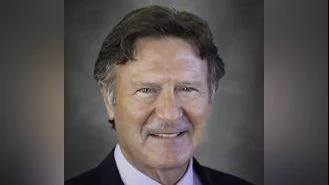Sen. Bill Brady
Sen. Bill Brady
Edgar County Watchdog Kirk Allen wonders if longtime state Sen. Bill Brady (R-Bloomington) has passed the point of no return.
“If the findings are true, I don’t believe a person wanting reform as he says he does would be involved,” Allen told the McHenry Times about reports of Brady's undisclosed financial ties to the gambling industry. “I have no tolerance for self-dealing at all.”
A recent ProPublica Illinois/WBEZ Radio investigation published by the Chicago Sun-Times found that at a time when lawmakers in Springfield were considering a massive gambling expansion throughout the state that included a tax hike on video-gaming machines, politicians like Brady, who stood to vastly influence the final legislation, may have had ulterior motives based on their previously undisclosed financial connections with the industry. Researchers found that Brady and Chicago Democrat Antonio Munoz, the assistant Senate majority leader, both have dealings in the industry that have created hefty profits for them and their families.

Edgar County Watchdog Kirk Allen
| https://edgarcountywatchdogs.com
The legislation successfully passed the House and Senate on Sunday and will become law when, as expected, Gov. J.B. Pritzker signs on the dotted line. As part of the bill, the tax on video-gaming machines will increase 3 percent on July 1, with another 1-percent increase a year after that.
In the case of Brady, Illinois Gaming Board records indicate that he has long been listed as a “person with significant influence or control,” or what’s known as a PSIC, for Midwest Electronics Gaming (MEG), meaning he receives a percentage of proceeds from slot and poker machines from one of the state’s largest video-gaming companies. Over a six-year period beginning in 2012, Midwest pocketed at least $80 million.
Such an arrangement also means that any new video-gaming tax stood to directly impact the veteran lawmaker’s bottom line through the Brady Ventures company he and his wife – who is also listed as a PSIC – have owned since 2011, according to gaming board records. Such ties, coupled with the massive campaign push by the gambling industry, have Allen questioning how objective Brady or any other lawmakers in the same position could truly be when state leaders were desperate to get their hands on more revenue to fund a much-needed capital program and balance the budget.
“All the details about his involvement have to be exposed,” Allen added. “And since he didn’t do any of that voluntarily, I think the right thing for him to do would be to resign from office altogether. If you can’t trust him to legislate the gaming board, how can you trust him as a lawmaker?”
Brady voted “present” when the bill came to the Senate floor on Sunday, a week after the ProPublica article appeared. Allen countered that’s hardly enough.
“As an elected official he is empowered to do a certain job,” he said. “If he only recuses himself on some votes that means he is putting his own interests ahead of those of the people. He should just resign.”
In his February budget proposal, Pritzker proposed raising some $89 million for a capital campaign through a tax increase on video slot and poker machines. Selling themselves as small business owners, video-gaming operators branded any tax increase as an assault on small businesses while championing such slogans as “Save Main Street” and “Bet on Main Street.”
In truth, video-gaming machines have become big business in Illinois, attracting national casino companies, private equity and hedge fund operators alike. Over a six-year period stretching through 2018, the top five video-gaming operators in the state controlled nearly 50 percent of the market to the tune of grossing nearly $1 billion in revenues.
Over that same time, tax rates on video gaming in Illinois have remained among the lowest in the country at 30 percent, even as casinos across the state have continued to face levies at progressive tax rates. Ironically, Brady voted against the Video Gaming Act legislation that legalized the industry in 2009. But by 2016, he was working as a sales agent with MEG and in less than two years had been designated as a PSIC.
“I don’t feel betrayed by him because I never trusted him to begin with,” Allen said of Brady. “I never trusted him based on many things he’s done over the years. He’s always been inconsistent when it comes to fiscally conservative matters.”
In the six-years that video gaming has been legal in Illinois, players around the state have lost roughly $6 billion with about one-fourth of that going to the state. Rather than increasing the tax on video gaming, critics of Pritzker’s tax lobbied lawmakers to allow them to double the maximum bet on video slots and poker from $2 to $4.






 Alerts Sign-up
Alerts Sign-up